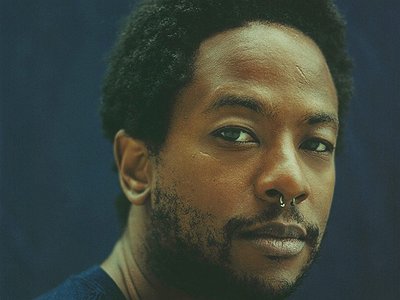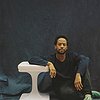Part 1
Name: Markus Lake
Nationality: Canadian
Occupation: Musician
Current Release: Third Album on Constellation
Recommendation: Dirt Road Diamond by Childish Major / a speech by Fred Moten - An Ecology of (Eloquent) Things
Website/Contact: Markus has a bandcamp page at markusfloats.bandcamp.com
When did you start writing/producing music - and what or who were your early passions and influences? What is it about music and/or sound that drew you to it?
I joined my first band in high school. We were doing a skronky noise-rock thing and I feel super lucky to have had that as one of my first major musical experiences. At the time, I was helping run all-ages shows and that whole experience of working collectively shaped my understanding of how and why music is made. Music was as much about the bands that were playing as it was about sharing ideas and connecting with like-minded people. This all created a feedback loop with my formative love of punk and hardcore (I still have a serious soft spot for it) but I eventually gravitated/was guided by friends towards more punk-adjacent stuff; Nick Cave, Throwing Muses, X, Sleater Kinney, The Minutemen, Bjørk, The Slits etc… At some point some good friends of mine turned me on to “A Love Supreme” and it was a real lightbulb moment, like, “Oh, you can really achieve something extremely beautiful with this music thing… I should look into this.”
Making music is the thing I like the most about being human.
For most artists, originality is first preceded by a phase of learning and, often, emulating others. How would you describe your own development as an artist and the transition towards your own voice? What is the relationship between copying, learning and your own creativity?
After high school, I did a two year jazz program where I was taught The Right Way To Play. I never really got into it. Without a doubt, I learned a lot and wouldn’t change it for the world, but there was always something about it that didn’t sit right with me. I think there’s a remnant of the little punk piss-ant contrarian who doesn’t want to be told how to do things. I have a fundamental distrust of most institutions and for all the wonderful and beautiful things Jazz has given us, contemporary jazz and jazz education felt a little… regressive? The right way to do something is never the whole point. The point, or at least part of it, is understanding why the right way to do something is beneficial. I’ll concede that sometimes that kind of understanding is best achieved by just putting your nose to the grindstone and like, learning how to play that Ray Brown solo… but it never really jelled with me. This could also just be a hindsight justification for doing quite poorly in jazz school.
Maybe what’s meant when someone is described as having a distinctive voice is that they display an understanding and intention that’s unrelated to, independent of, or in defiance of their technical ability. I think that’s something that can only really be achieved by doing something for a very long time. Puttin’ in the hours. It doesn’t seem like there are any shortcuts, but there are definitely many different paths (unless you just luck into it, but that seems like the exception). In that sense, I think the process of learning/copying/emulating isn’t separate from achieving that creative voice, there is no transition. It is the creative voice, just at a different point in time.
All this to say, I copy all the time! Constantly. Almost all of my ideas can be traced back to specific moments, sounds, situations or passages I’ve experienced, whether it’s the attack of a bell sound or the stereo field of a marimba. I try to do it honestly, though. I’m still trying to make something that could only come from me- or at least something that feels somehow personal.
My friend Anamai once described a compliment where someone said “it sounds like you’re working through something” and I think that’s really high praise. I’m always rooting for whoever’s out there struggling to let their own weird individual human-ness out.
What were your main compositional- and production-challenges in the beginning and how have they changed over time?
It’s mostly the same old refrain of getting to know the software and figuring out what I’m actually trying to do with it. In the beginning, it was hard and now it’s hard in a different way. I think that’s something that never changes; you’re always just trying to do something and figuring out why you’re doing it. The challenges have become increasingly about understanding my own goals and intentions rather than overcoming technical obstacles, but really, it’s just challenges all the way down - forever and ever.
What was your first studio like? How and for what reasons has your set-up evolved over the years and what are currently some of the most important pieces of gear for you?
My first studio was a laptop, a 1/4” to 1/8” adapter for my bass, Garageband and headphones in my bedroom. Not much has changed since then, except now I use a 4-octave midi keyboard, Logic Pro instead of Garageband and I have decent monitors. I think I managed to fall out of love with gear when I realized all the sounds I wanted to make could be made in this freaky little box.
How do you make use of technology? In terms of the feedback mechanism between technology and creativity, what do humans excel at, what do machines excel at?
All the music I make is mediated through and ultimately controlled by technology. I appreciate the mathematical precision that technology grants- the detail down to the individual sample of every sound. I try to make that an apparent quality of the music I’m making. I’ve never really experienced the dichotomy between technology and creativity, at least not in any negative sense; the two work in tandem. Humans excel at using machines to express their creativity.
Production tools, from instruments to complex software environments, contribute to the compositional process. How does this manifest itself in your work? Can you describe the co-authorship between yourself and your tools?
At this point it’s all a gross tangle. I make tracks without the intention of ever performing them live so I never feel restricted by what happens within them. I’ve joked to myself that at this point I play the DAW. It’s just another instrument.
Collaborations can take on many forms. What role do they play in your approach and what are your preferred ways of engaging with other creatives through, for example, file sharing, jamming or just talking about ideas?
I play bass with a great group of musicians (James Goddard, Ari Swan and Lucas Huang) in a totally free free-jazz project called Egyptian Cotton Arkestra and that’s been good for scratching the make-music-with-other-people itch. We’re trying to do a file-sharing thing right now and it’s been challenging for me. On top of the psychological toll of living through a pandemic, I’m just not used to working this way. At this point, if it’s not a loosely rehearsed improvisation, I’m not sure if I’m really up for collaborations.
I grew up hopping from band to band, usually playing in two or three projects at a time and I loved the whole experience. I loved writing songs with people, going to band practice, playing shows, slogging my bass around, lifting amps up countless flights of stairs. At a certain point though, I felt diminishing returns from the labour and I took a step back. I think I burnt out a bit and I’ve turned into a very solitary artist over the past few years.
Could you take us through a day in your life, from a possible morning routine through to your work? Do you have a fixed schedule? How do music and other aspects of your life feed back into each other - do you separate them or instead try to make them blend seamlessly?
I’m a lazy dude. I’m wildly lucky to be debt-free, able-bodied, cis from a middle-class family with zero dependants and I live like it. I’m gonna give a rundown of what my life was like pre-pandemic because it seems unfair to try and put forward this image of “the working artist” when really, we’re all just terrified little pups right now.
Pre-pandemic: I wake up around 11ish, have a coffee and a smoke. I’ll usually listen back to some demos and send some emails/read the news. Then it’s a second smoke and I'll try to do some basic life tasks like tidying up, grocery shopping, laundry, that kind of stuff. Once it’s clear that I’ve Accomplished Something Concrete, I’ll try to work on something more creative: a drawing, a painting, a new track, answering 15 Questions. Usually this will devolve into half-watching something or listening to music and just generally rutting around the internet. At some point, I’ll try and get out of the house to see a pal, or volunteer, or go to a show. 90% of the time I’ll manage to fit an hour or two of piano practice in there somewhere. Maybe once a week I’ll get stuck in the “try to work on something” portion of my day and just work on music for 6-10 hours straight, but that’s actually kind of rare. I like to be in bed by 1AM but having worked in bars for 14 years, falling asleep before 3AM is tricky so I usually end the day by watching a movie, listening to demos again, or reading for a bit.
During the pandemic: Wake up around noon. Read the news. Somehow have infinite free time but be mysteriously unable to really accomplish anything. Text some buds. Instagram. Read for a bit. Watch TNG. Work on a track for like 10 minutes. Watch TNG. Exercise a bit. Watch Futurama. Have a shower. Read the news. Exercise some more. Watch literally anything, with a heavy skew towards terrible blockbusters. Now that I’m typing this out, it sounds bad, but I’m actually kind of enjoying being wildly unproductive. I’m still eating well and going for long walks and I’m actually getting more exercise than I was before but I’m practicing piano less than I’d like to be.
I’m definitely trying to live my life in a way where music is a natural, non-stressful part of the whole living experience. I think with the global pandemic there’s an easy feeling of guilt that I’m not working hard enough, but fuck working hard enough, it’s a global pandemic.






